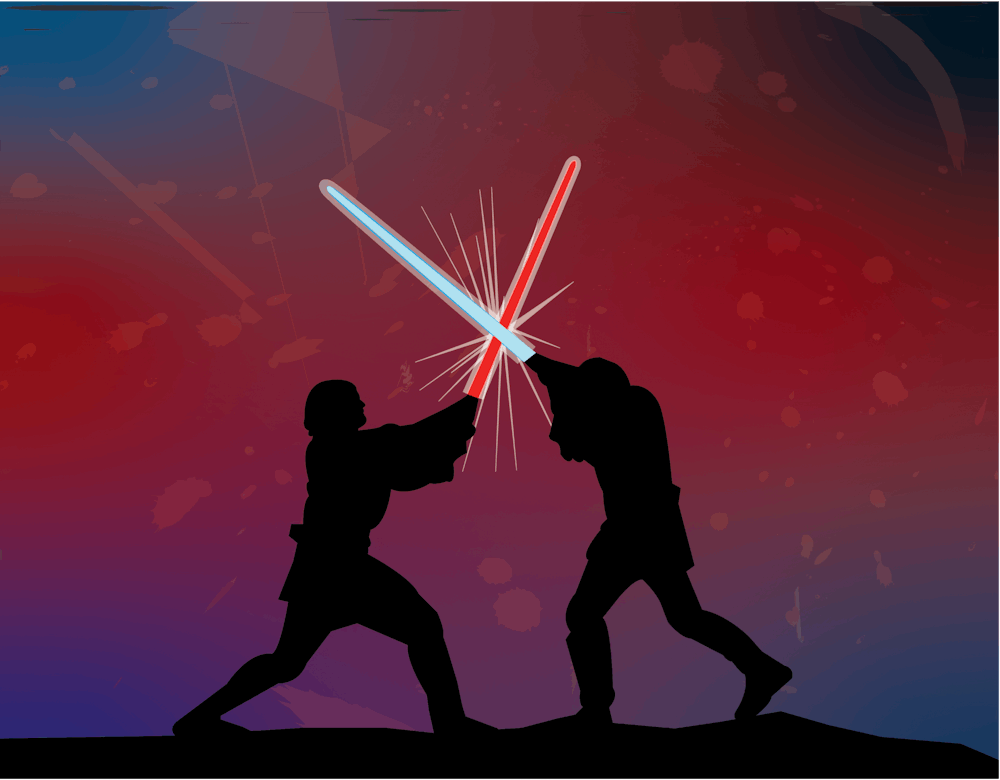Here is a statement sure to spark controversy — the "Star Wars" prequels do not deserve the hate. In fact, I love them. Truthfully, this wasn’t always the case; I maligned the prequels as proof of the series' downhill slide for years. Sound familiar?
It wasn’t until Disney’s sequel trilogy royally dropped the ball that the beauty of the oft derided prequel saga was revealed. Some haven’t watched them in a few years, some have only heard of their faults and some have a bad taste left in their mouth by the Disney sequels. Regardless, it's time to give the "Star Wars" prequels another chance.
Just as he was with the originals, George Lucas was daring, unafraid to try new ideas and explore new themes. He wrought a trilogy wholly unlike anything that had come before, but this time, he was met with arguably unprecedented backlash. The prequel trilogy was disparaged as an affront to the original saga, with critics ignoring the myriad of elements worthy of celebration. The prequels get so much right, yet they are scorned because they are different.
Or perhaps, truthfully, they are scorned because they were not what we expected.
George Lucas once described the prequels as poetry — intended to mirror, complement and juxtapose the original saga. They exist to tell a different type of story than the original trilogy; instead of the classic hero’s journey of overcoming hardships, the prequels tell the tale of an innocent child whose upbringing and hardships lead to his fall from grace. Instead of the dogmatic, black and white portrayal of morality from the original movies, the prequels challenge this notion with a much more morally ambiguous world.
The prequels excel in world building, expanding the "Star Wars" universe by leaps and bounds and introducing new planets and cultures. The story is more ambitious this time around, consisting of many distinct and interwoven plot lines, unified by the idea that a Sith Lord created a seemingly local conflict to give himself control of the galaxy. These details resonate with the established universe, adding a nuanced gravitas to a previously established canon.
Critics of the prequels attack the films from several angles. Admittedly, the pacing can suffer in parts, and the earlier films are plagued by inconsistency.
Regardless, most criticisms of the films are fundamentally flawed. They attack the awkward character and dialogue of Anakin as a sign of poor directing, forgetting he is a former slave raised by warrior monks — of course he is not smooth with the ladies. They attack the portrayal and stilted dialogue of the Jedi, disregarding that they are intentionally written as laconic as possible. They attack the use of CGI, although it is this very technology that enabled Lucas to expand his universe like he did. They attack Jar Jar Binks as being childish, forgetting "Star Wars" is intended to appeal to kids, not just adults.
Ultimately, this balance is the great strength of "Star Wars" — aimed at children yet complex enough to be enjoyed by adults. The prequels achieve this subtlety in fresh, invigorating ways while creating an exceptionally fun atmosphere to boot. Maybe the critics are right. Maybe the prequels are flawed movies; they are definitely not perfect.
However, the prequels are exceptional additions to the "Star Wars" universe — daring, unafraid to push the boundaries and take risks. Not every beat might have stuck the landing, but, by God, the ones that did show the very soul of "Star Wars" shining through.
For those who haven’t watched them in a few years or have only heard of their faults, it's time to give the "Star Wars" prequels a fresh chance. There are parts difficult to love, but there is also a great deal of complexity, continuity, adventure, fantasy and beauty that made believers of a whole new generation. Isn’t that what watching "Star Wars" is all about?

